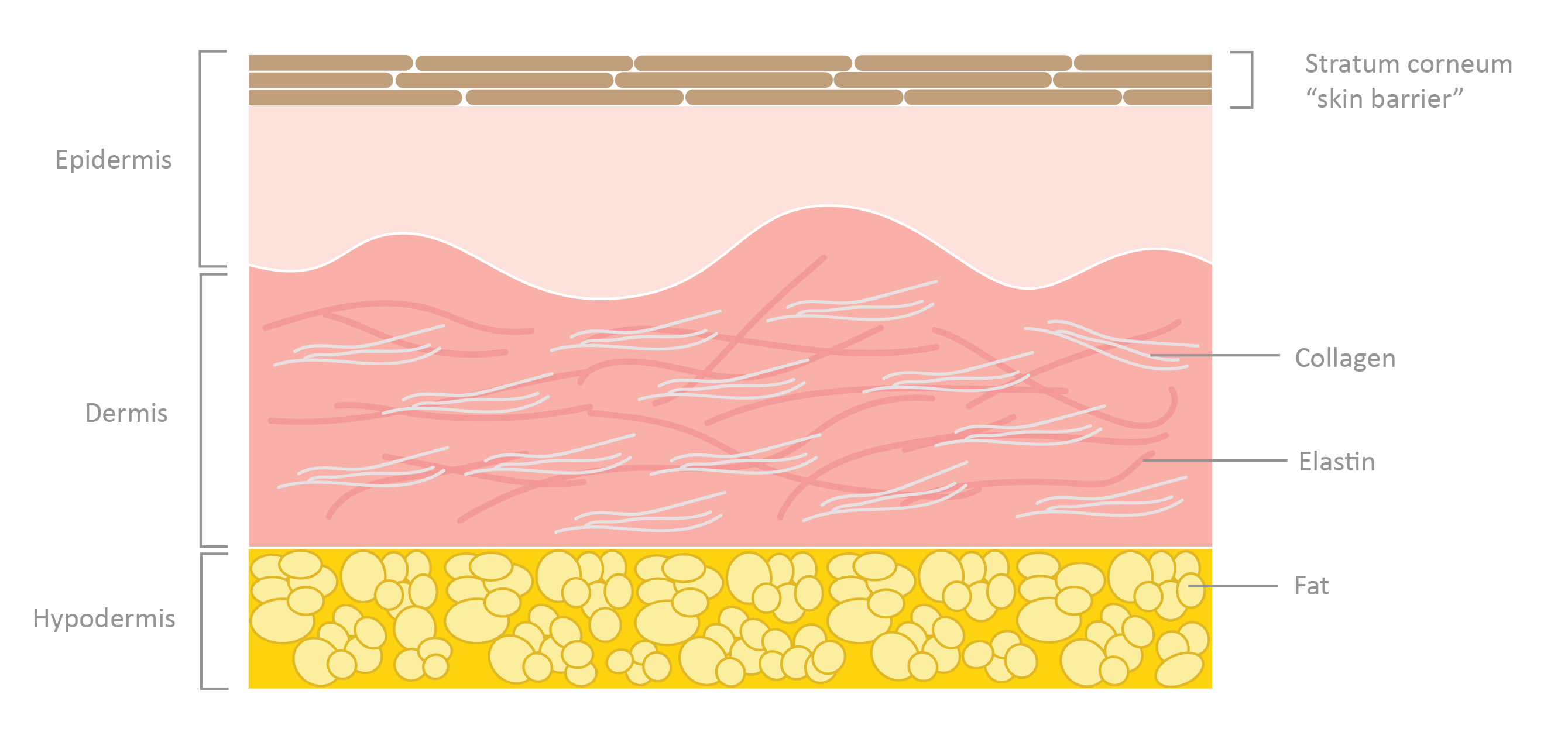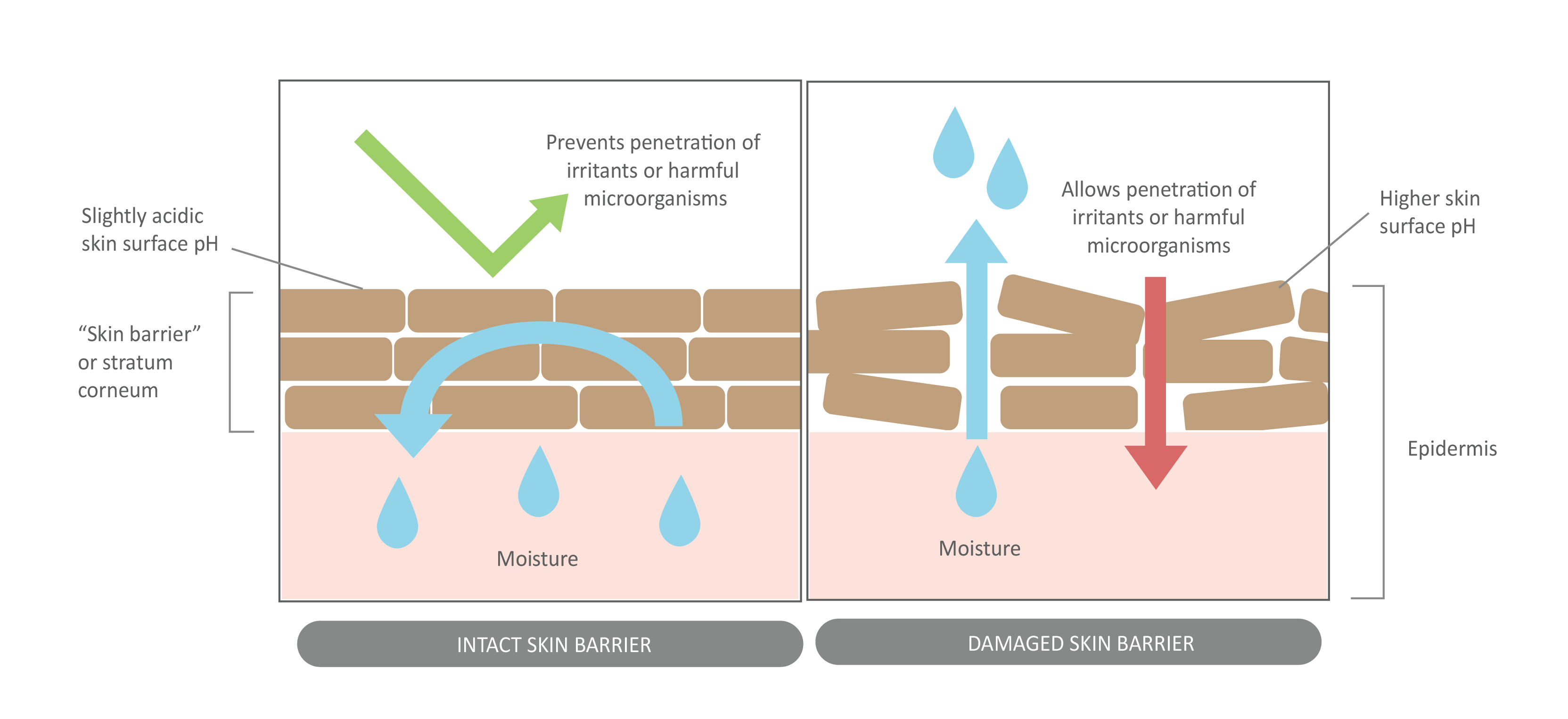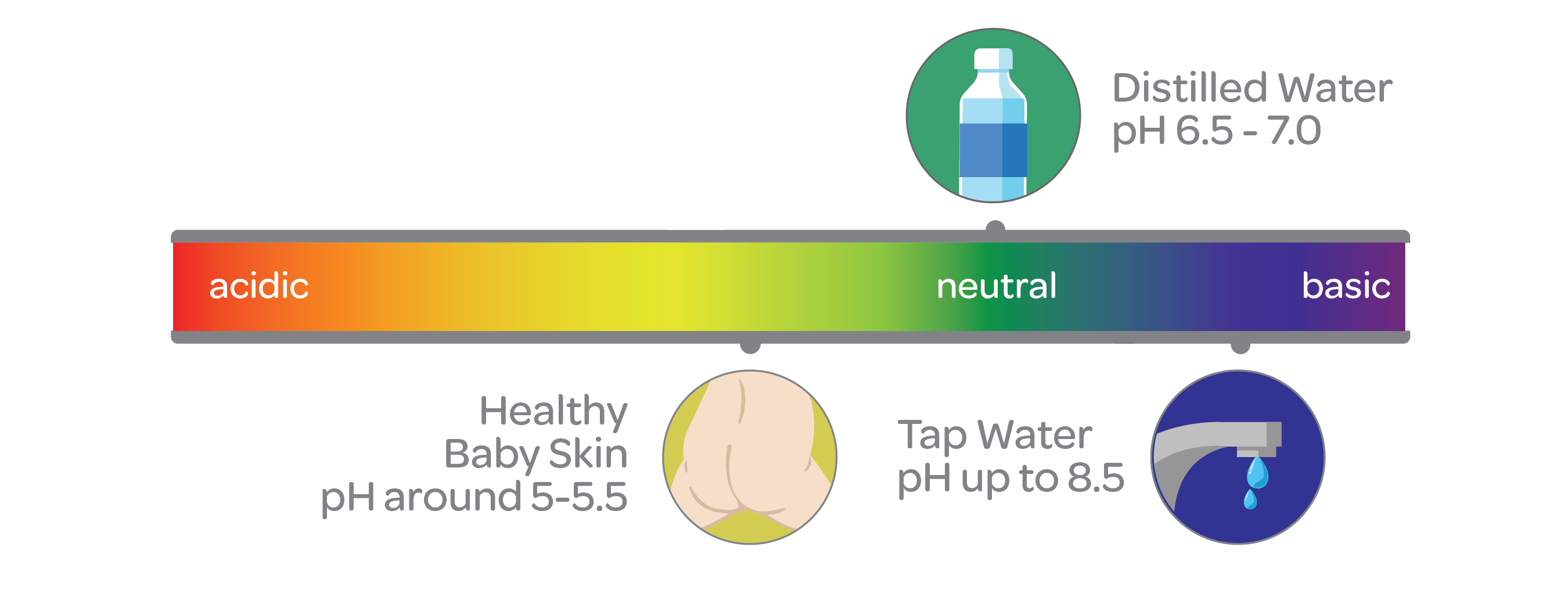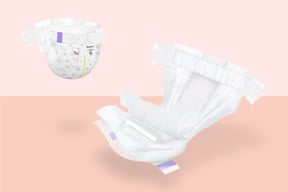Importance of Healthy Baby Skin:
Baby skin is made up of three main layers:
- Contains the Stratum corneum or skin barrier - outermost sublayer of the epidermis that protects baby from the external environment and only layer that we can see
- The middle layer of skin which provides strength and elasticity
- The innermost skin layer which stores fat and provides insulation and shock absorption
- This layer attaches the top two layers of skin (epidermis and dermis) to cartilage and bone

Characteristics of healthy baby skin include:

- An intact skin barrier, free of redness and dryness/scaling:
- Helps prevent penetration of irritants and harmful microorganisms
- Effectively retains moisture inside the body to help prevent dehydration
- Characterized by a diverse, healthy microbiome
- A healthy, intact skin barrier is essential for overall health
- Several factors can contribute to skin barrier damage such as: changes in skin pH, irritants (like those found in urine and poop - see What is diaper rash?), abrasion, excess moisture on skin
- Slightly acidic skin surface pH:
- Healthy infant skin has a pH around 5-5.5 which is important for:
- Proper structure and function of the skin barrier to help keep skin moisturized and healthy
- Preventing the overgrowth of harmful bacteria on the skin surface that can lead to skin barrier damage
- Excess moisture on skin and irritants from urine and poop can cause an increase in skin pH and the potential for irritation. For more information, go to What is Diaper Rash?
- Balanced skin moisture:
- Infant skin absorbs moisture faster than adult skin, but it also loses moisture faster
- Ensuring that the skin is well moisturized is important for health:
- Excess loss of moisture can lead to skin dryness
- Excess moisture in the diapered area for a prolonged period of time can cause damage to the skin barrier, making it more permeable to irritants and microorganisms.

Debbie Ngai, BS Chemical Engineering
Reviewed by: Karien Rodriguez, PhD Biomedical Engineering
Learn more about the Huggies® Diaper Rash Care Guide coming soon.










